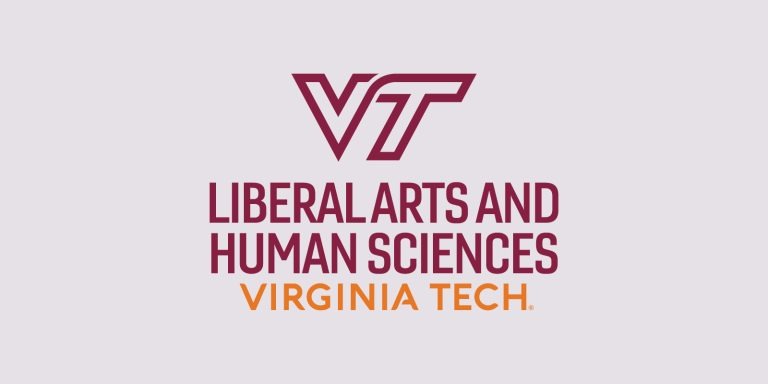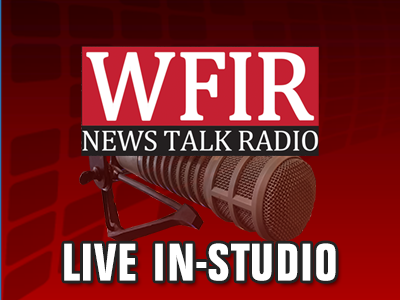
A new statewide poll finds that most Virginia parents are satisfied with the way public school systems are handling the challenges they face, but they are worried their children are not learning as much as they should. More from WFIR’s Evan Jones:
From the Wason Center at Christopher Newport University: Most parents are satisfied with Covid-19 school options, but 3 out of 4 still worry their children will fall behind; Va. voters back public employee collective bargaining
Summary of Key Findings
- 64% of Virginia voters with school-age children are either very satisfied (24%) or somewhat satisfied (40%) with how their child’s education is being handled under restrictions due to the Covid-19 pandemic.
- 75% of Virginia voters with school-age children are either very concerned (53%) or somewhat concerned (22%) about their children falling behind in school because of disruptions due to the pandemic.
- Virginia voters support allowing collective bargaining rights for public employees, 68%-25%.
- Virginia voters are evenly split about the direction of the Commonwealth (48% right direction, 47% wrong direction) and about how Governor Ralph Northam is doing his job (47% approve, 46% disapprove).
- A majority of Virginia voters disapprove of the direction the country is heading (49%-39%), but this marks a significant shift compared to the Wason Center survey before the November election, when 76% of likely voters disapproved.
Analysis
State of things: In the wake of the 2020 elections and during the ongoing pandemic, registered Virginia voters who say they voted in the presidential election are evenly split on their assessment of the state and its leadership. When asked about the direction of the Commonwealth, 48% indicated Virginia was heading in the right direction, while 47% say the wrong direction. Governor Northam’s job approval is quite similar, with 47% saying they approve of the job the governor is doing and 46% indicating disapproval. This split is strongly along partisan lines. On the direction of the Commonwealth, 90% of Democrats approve, while 92% of Republicans disapprove; on Governor Northam, 86% of Democrats approve, while 87% of Republicans disapprove.
Regarding the direction of the country, Virginia voters in this survey showed a marked shift compared to responses prior to the November election. Likely voters were very pessimistic before the election, expressing disapproval of the country’s direction (76%-16%). In this survey, more voters still say the United States is headed in the wrong direction, but by a far smaller margin (49%-39%).The difference between the assessment of likely voters pre-election and self-described voters post-election is almost entirely among Democrats, whose “wrong direction” assessment went from 97% to 22% after the election of Joe Biden and Kamala Harris as President and Vice President.
Collective Bargaining: 68% of registered voters in Virginia support or strongly support allowing public employees to join a union and negotiate a contract, while 25% oppose or strongly oppose such a policy. The Virginia General Assembly passed legislation in March ending the statewide prohibition on collective bargaining for public employees. This allows, but does not require, cities, counties, towns and school boards to authorize collective bargaining for local public employees, beginning in May 2021. It does not apply to state employees. Many local governing bodies are expected to choose not to permit collective bargaining and thus prohibit public employees from unionizing. The results of this survey suggest that Virginia voters would support allowing public employees across the state to engage in collective bargaining.
COVID-19 and K-12 instruction: The COVID-19 pandemic has significantly altered the delivery of K-12 instruction across the Commonwealth. Most parents in our survey indicate their children are receiving online instruction only (56%), while 27% are in a hybrid model of instruction, 12% are receiving in-person instruction only, and 3% are being homeschooled. A majority of parents are either somewhat (40%) or very satisfied (24%) with the way their children’s school has been handling instruction this fall, while the rest are not too satisfied (14%) or not at all satisfied (19%).
Despite the 64% overall satisfaction, 75% of parents are very concerned (53%) or somewhat concerned (22%) about their children falling behind in school as a result of the COVID-19 restrictions. “Parents are juggling work, caregiving responsibilities, and helping their kids through virtual school,” said Wason Center Research Director Rebecca Bromley-Trujillo. “Most may believe their school systems are doing the best they can, but it’s no surprise that so many are worried about their children’s progress.”
Field Dates: November 8-22, 2020
906 Virginia Registered Voters (MOE = +/- 4.7 %)
Q1-2, Q4 = 857-Self-described 2020 Voters (MoE = +/- 4.9%)
Q1: Overall, would you say things in the COMMONWEALTH OF VIRGINIA are heading more in the right
direction or the wrong direction? * Virginia voters (n=857)
| All | Rep | Ind | Dem | Males | Females | White | Black | 18-44 | 45 + | Non-College | College | |
| Right direction | 48 | 11 | 42 | 90 | 41 | 54 | 35 | 89 | 52 | 45 | 38 | 57 |
| Mixed | 4 | 3 | 7 | 2 | 4 | 4 | 4 | 3 | 3 | 5 | 2 | 6 |
| Wrong direction | 47 | 86 | 47 | 6 | 54 | 41 | 60 | 7 | 44 | 49 | 59 | 35 |
| Dk/Ref (vol) | 1 | – | 3 | 1 | 1 | 1 | 2 | 1 | 2 | 1 | – | 2 |
For comparison (Sept. 2020 likely voter model)
Right 43
Mixed 7
Wrong 47
Dk/ref (vol) 2
Q2: And how about the country …overall, would you say things in the UNITED STATES are heading more in the right direction or the wrong direction?
| All | Rep | Ind | Dem | Males | Females | White | Black | 18-44 | 45 + | Non-College | College | |
| Right direction | 39 | 14 | 36 | 70 | 36 | 42 | 31 | 66 | 46 | 35 | 38 | 40 |
| Mixed | 10 | 13 | 8 | 7 | 12 | 8 | 10 | 9 | 11 | 10 | 9 | 11 |
| Wrong direction | 49 | 73 | 52 | 22 | 50 | 48 | 58 | 22 | 41 | 54 | 53 | 44 |
| Dk/Ref (vol) | 2 | 1 | 4 | 1 | 2 | 2 | 2 | 3 | 3 | 2 | 0 | 4 |
For comparison. Sept. 2020 likely voter model
Right 16
Mixed 8
Wrong 76
Dk/ref (vol) 1
Q4: Do you approve or disapprove of the way Ralph Northam is handling his job as Governor of Virginia? [IF RESPONDENT IS UNSURE (“DON’T KNOW”, “DEPENDS”, “NOT SURE”, ETC.) PROBE ONCE WITH: OVERALL do you approve or disapprove of the way Ralph Northam is handling his job as Governor? IF STILL UNSURE ENTER AS DON’T KNOW]
| All | Rep | Ind | Dem | Males | Females | White | Black | 18-44 | 45 + | Non-College | College | |
| Approve | 47 | 8 | 43 | 92 | 39 | 54 | 36 | 83 | 47 | 47 | 38 | 56 |
| Disapprove | 46 | 87 | 42 | 3 | 51 | 41 | 57 | 10 | 44 | 47 | 55 | 37 |
| Dk/Ref (vol) | 7 | 5 | 15 | 5 | 9 | 6 | 8 | 7 | 10 | 6 | 7 | 8 |
For comparison, Sept. 2020 likely voter model
Approve 53
Disapprove 41
Dk/ref (vol) 6
Q12: Currently Virginia public employees do not have collective bargaining rights, which is the right to join a union and negotiate a contract. Do you support allowing public employees the right to collective bargaining?
Strongly support 22
Support 46
Oppose 16
Strongly Oppose 9
Dk/ref (vol) 7
Q15: I only have a few more questions…Are you the parent or guardian of any children who are in elementary, middle or high school?
Yes 34
No 66
If yes, move to Q16
Q16: What best describes the type of instruction your child(ren) are getting from school right now?
In-person instruction only 12
Online instruction only 56
A mix of in-person and online instruction 27
Homeschooling 3
Dk/ref (vol) 2
Q17: Overall, how satisfied are you, if at all, with the way your children’s school has been handling instruction this fall?
Very satisfied 24
Somewhat satisfied 40
Not too satisfied 14
Not at all satisfied 19
Dk/ref (vol) 3
Q18: How concerned, if at all, are you about your children falling behind in school as a result of any disruptions caused by the COVID-19 outbreak?
Very concerned 53
Somewhat concerned 22
Not too concerned 8
Not at all concerned 16
Dk/ref (vol) 1
Demographics
EDUC: Could you tell me the highest level of school or college you had the opportunity to complete:
High school or less 51
College or more 49
HISPANIC: Do you consider yourself to be Hispanic or Latino?
Yes 6
No 93
Dk/ref (vol) 1
RACE: Do you consider yourself to be:
White 71
Black or African American 18
Other 11
AGE: (Recorded as exact year of birth)
18-24 5
25-34 15
35-44 23
45-54 13
55 & older 44
RELIG: What is your religious preference, are you Protestant, Roman Catholic, Jewish, another religion, or no religion?
Protestant 24
Christian (non-specific) (vol) 25
Catholic 14
Jewish 1
Other 13
None 20
Dk/ref (vol) 3
IDEOL: When it comes to your ideology, would you consider yourself to be a…
Strong liberal 6
Liberal 13
Moderate, leaning liberal 21
Moderate, leaning conservative 9
Conservative 25
Strong Conservative 15
Dk/ref (vol) 10
PARTYID: In politics today, do you generally consider yourself to be a Republican, a Democrat, or an Independent?
Republican 36
Democrat 34
Independent 25
No Preference (vol) 2
Other Party (vol) 1
Dk/Ref (vol) 2
INCOME: And, just for statistical purposes, in which of the following categories does your family income fall?
Under $25,000 10
$25-$49,999 13
$50-$74,999 20
$75-$99,999 11
$100,000-$149,999 15
Over $150,000 16
Dk/ref (vol) 14
SEX:
Male 47
Female 53
AGE: (Recorded as exact year of birth)
18-24 5
25-34 15
35-44 23
45-54 13
55 & older 44
INCOME: And, just for statistical purposes, in which of the following categories does your family income fall?
Under $25,000 10
$25-$49,999 13
$50-$74,999 20
$75-$99,999 11
$100,000-$149,999 15
Over $150,000 16
Dk/ref (vol) 14
Cell or Landline
Cell 59
Landline 41
How the survey was conducted:
The results of this poll are based on 906 interviews of registered Virginia voters, including 371 on landline and 535 on cell phone, conducted Nov 8-22, 2020. Percentages may not equal 100 due to rounding. The margin of error for the whole survey is +/- 4.7% at the 95% level of confidence. This means that if 50% of respondents indicate a topline view on an issue, we can be 95% confident that the population’s view on that issue is somewhere between 45.3% and 54.7%. All error margins have been adjusted to account for the survey’s design effect, which is 2.1 in this survey. The design effect is a factor representing the survey’s deviation from a simple random sample and takes into account decreases in precision due to sample design and weighting procedures. Sub-samples have a higher margin of error. In addition to sampling error, the other potential sources of error include non-response, question wording, and interviewer error. The response rate (AAPOR RRI Standard Definition) for the survey was 8%. Five callbacks were employed in the fielding process. Live calling was conducted by trained interviewers at the Wason Center for Public Policy Survey Research Lab at Christopher Newport University. The data reported here are weighted using an iterative weighting process on region, age, race, sex, and education to reflect as closely as possible the 2020 population of Virginia registered voters. The sample was provided by L2.



